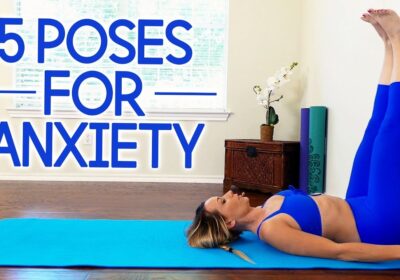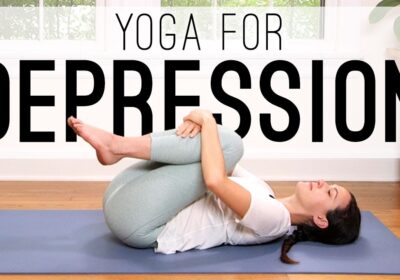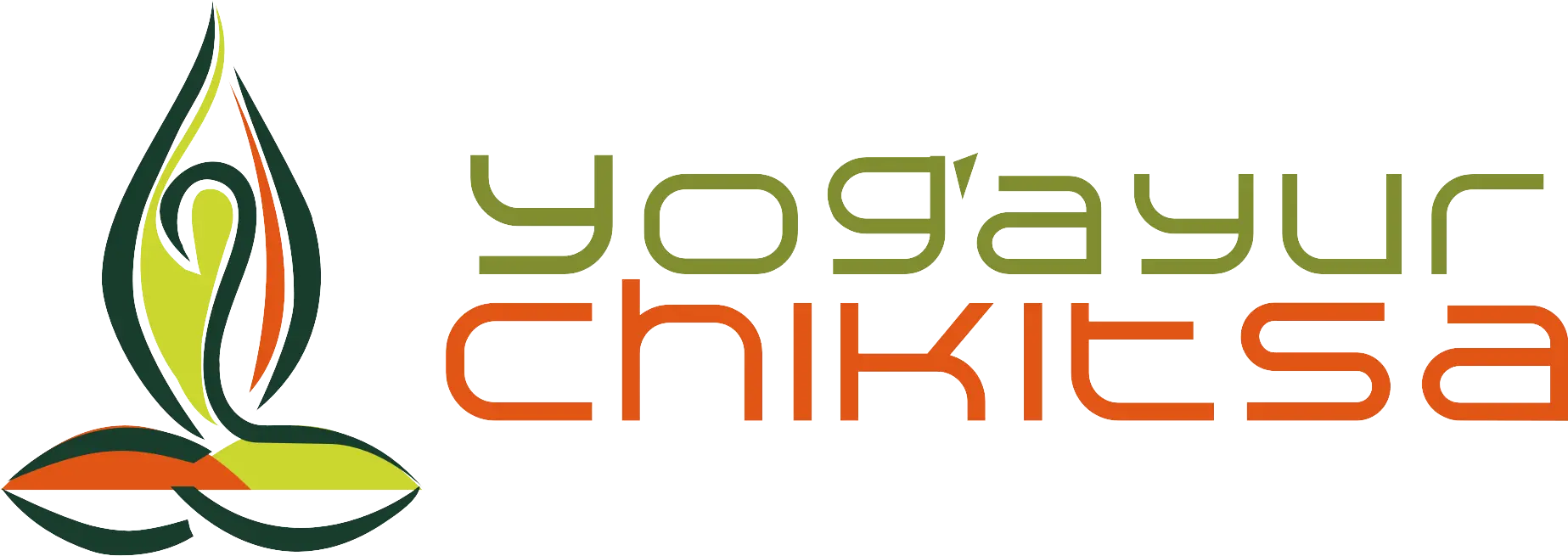Yoga for Headache

Summary:
- Yoga can be a great adjuvant for the majority of patients with headaches of benign origin.
- Majority of pranayama practices can result in heavy headedness or headache, when practiced wrongly.
- Certain yoga practices can target acute episodes of migraine while some others will be useful in reducing the frequency of migraine episodes.
Yoga is a practice that involves physical postures, breathing exercises, meditation and yogic counseling. It has been shown to be beneficial for many health conditions, including migraine. Yoga can help to reduce the frequency and intensity of migraines, as well as improve overall quality of life. Yoga based practices for patients with migraine can be divided into two categories. One set of practices is for the acute phase of headache and another set of practices are to be used during the remission phase of migraine. The yoga practices which can possibly be useful for patients with migraine are:
- Yoga Nidra: This practice involves deep relaxation and meditation, which can help to calm the mind and reduce stress and tension.
- Pranayama: Breathing exercises such as alternate nostril breathing, complete yogic breathing, belly breathing (abdominal breathing), and sitali breath can help to balance the nervous system (yogic perspective) and reduce headaches.
- Yoga Asanas: Gentle stretches and poses such as child’s pose, downward-facing dog, and seated forward bend can help to release tension in the head and neck.
- Yoga for the Eyes: Specific eye exercises such as palming, blinks, and eye rotations can help to improve eye health and reduce headaches.
- Yoga for the Neck: Gentle neck stretches and movements can help to release tension in the neck and shoulders, which can contribute to migraines.
- Yoga for the Body: Whole body practices such as sukshma vyayama, sun salutations (if feasible) and warrior poses can help to improve overall body alignment and reduce tension in the muscles.
- Yoga for Stress Management: Practices such as pranayama, relaxation techniques and meditation can help to reduce stress and tension, which can trigger migraine.
- Yoga for Relaxation: Restorative yoga poses and relaxation techniques can help to relax the body and mind, which can improve sleep and reduce migraines.
- Yoga for Mindfulness: Mindfulness practices such as meditation and yoga nidra can help to reduce stress and tension and improve focus, which can be beneficial for patients with migraines.
- Yogic counseling: Yogic counseling involves understanding the principles behind yoga practice and forms the basis of yoga therapy. Without proper understanding of the core ideas, yoga may not be of much therapeutic value for patients with migraine.
Though yoga can be used for therapeutic purposes for patients with episodes of migraine. But it does not make it safe for all the patients. And also all the yoga practices are not safe for patients with migraines. Some of the examples of practices which can trigger episode of headache are:
- Inversions: Practicing yoga inversions, such as headstands and shoulder stands, can trigger migraines in sensitive individuals.
- Twists: Sudden twists and rotations (especially involving neck region) can exacerbate migraine.
- Rapid movements: Vigorous or fast-paced yoga practices, such as power yoga can be too stimulating and trigger migraines.
- Breathing practices: Certain pranayama techniques, such as kapalbhati or bhastrika, can be too stimulating; can precipitate and/or aggravate episodes of headache.
- Bending forward: Sudden acute forward bends such as uttanasana or paschimottanasana can also act as precipitants or aggravators of headache episodes.
- Sun salutations: The repetitive movement and breath-synchronized nature of sun salutation can be a difficult practice for some individuals and trigger migraine.
Yoga has been found to be effective in reducing the frequency and severity of migraines. Mechanisms of action which can be proposed for this improvement are:
- Relaxation and stress reduction: Yoga practices such as pranayama (breathing exercises) and meditation can help to reduce stress levels and promote relaxation, which can decrease the frequency of migraines. Yoga practices can also result in higher stress tolerance threshold which can automatically prevent episodes of headache.
- Improved sleep: Yoga practices such as yoga nidra (yogic sleep) can help to improve sleep quality, which can reduce the likelihood of migraines.
- Increased pain tolerance: Yoga practices such as yoga postures and pranayama can help to increase pain tolerance, which can reduce the severity of migraines.
- Better self-awareness: Yoga practices such as yoga postures and meditation can help to increase self-awareness, which can help to identify and address triggers for migraines.
There is a growing body of research that suggests yoga may be beneficial for individuals with migraine headaches. A systematic review and meta-analysis published in the Journal of General Internal Medicine in 2020 found that yoga significantly reduced the frequency, duration, and intensity of headache. The findings of this review supported short-term efficacy of yoga intervention and long term-efficacy is yet to be established.
It is important to note that each person’s migraine can be triggered by different things, so it is best to consult with a doctor before starting any yoga practice.
PS: While writing this article we have primarily focused on migraine, but the information provided is largely applicable to headaches of other benign origins too.
Related Posts

Yoga for Anxiety Disorders
Summary: Yoga can be used as both an add-on treatment and as a monotherapy for…

Yoga for Back pain
Summary: Yoga can be used as both an add-on treatment and as a monotherapy for…

Yoga for Depression
Summary: Yoga can be used as both an add-on treatment and as a monotherapy for…

Leave a Reply